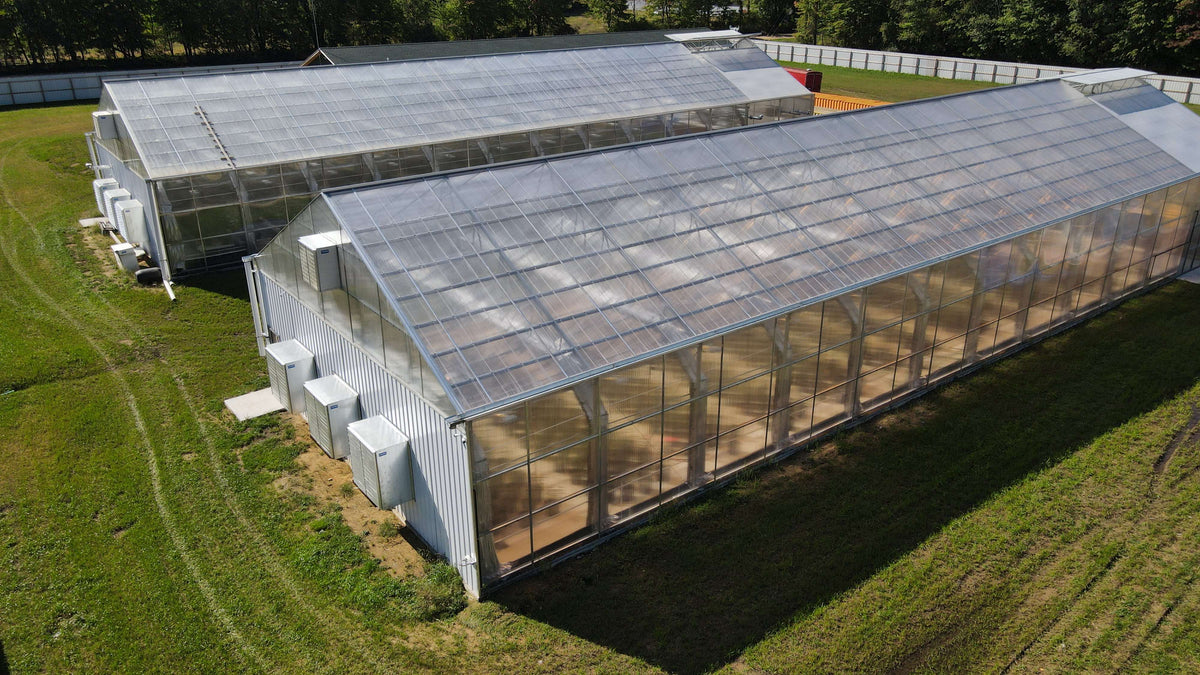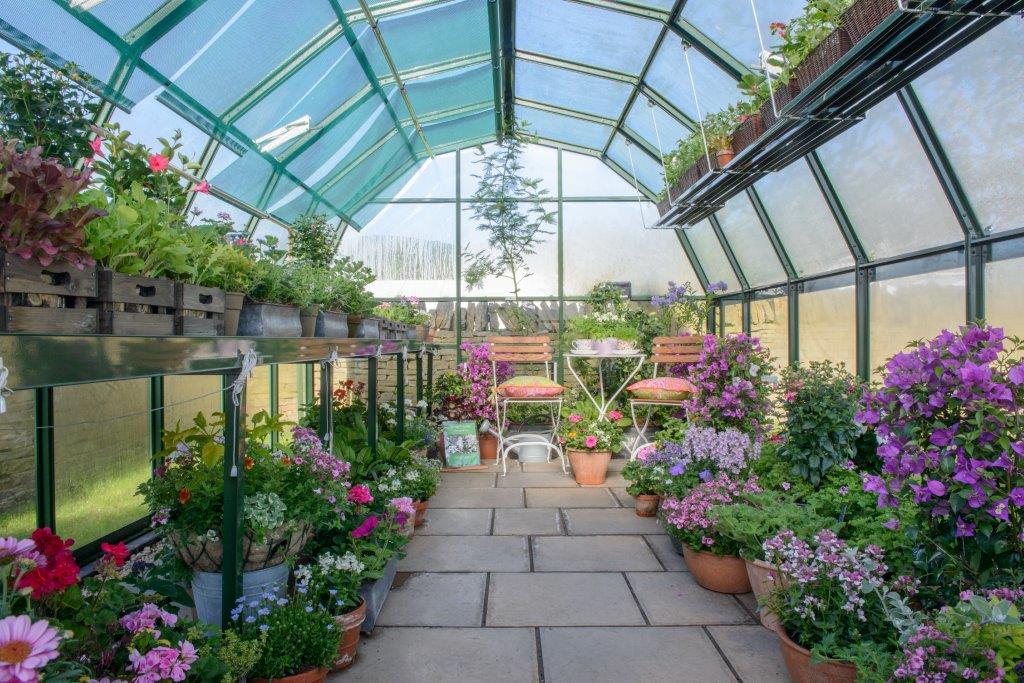Commercial Expanding Solutions: Monarch Commercial Greenhouse Utah Innovations
Wiki Article
Greenhouse Farming: Making The Most Of Crop Returns and Sustainability
Are you aiming to optimize your crop returns while promoting sustainability? Look no better than greenhouse farming. With controlled atmospheres and reduced water usage, greenhouse farming provides the excellent service for year-round manufacturing of fresh produce. By taking advantage of the power of technology and lasting techniques, you can make sure a plentiful harvest while reducing your environmental impact. Discover the advantages of greenhouse farming and start reaping the advantages today!Advantages of Greenhouse Farming
Are you questioning what makes greenhouse farming so advantageous? Well, allow me inform you! One of the significant advantages of greenhouse farming is the capacity to regulate the environment in which crops are expanded. With a greenhouse, you can manipulate variables like moisture, temperature level, and light to optimize plant growth. This means that you can grow crops throughout the year, despite the climate condition outside.Another advantage of greenhouse farming is the decrease in water usage. By making use of water much more successfully, greenhouse farming helps to save this valuable resource.
In addition, greenhouse farming enables much better insect and illness management. With the regulated setting, it is much easier to manage the spread and protect against of parasites and conditions. This minimizes the requirement for hazardous chemicals, making greenhouse-grown crops more secure and more eco-friendly.
Furthermore, greenhouse farming provides protection against severe climate occasions. Crops grown in greenhouses are secured from hefty rain, solid winds, and hailstorms, which can harm or ruin exterior plants. Monarch Greenhouse builder Utah. This defense makes certain a much more trusted and steady plant yield, even throughout uncertain weather

Taking Full Advantage Of Plant Returns With Regulated Settings
To make best use of crop returns in greenhouse farming, you can attain optimum outcomes by controlling the environment. One of the essential advantages of greenhouse farming is the ability to manage these ecological elements, enabling you to customize them to the certain needs of each plant. By implementing these controlled atmospheres, you can make best use of plant yields and accomplish constant, high-grade produce throughout the year.Supporting Sustainability Via Greenhouse Farming
Take full advantage of sustainability in greenhouse farming by applying efficient source monitoring strategies. One key aspect of promoting sustainability is the administration of water usage. By executing systems such as drip irrigation and recirculation, you can substantially lower water wastage and guarantee that every drop counts. In addition, making use of naturally degradable and organic materials for bug control and fertilization can help decrease environmental effect. Integrated Bug Monitoring (IPM) techniques, for example, involve using beneficial insects to control pests, decreasing the requirement for unsafe chemicals. Additionally, energy usage can be reduced by using renewable resource sources, such as solar panels, to power greenhouse procedures. This not only reduces reliance on nonrenewable fuel sources yet likewise lowers greenhouse gas discharges. Correct waste monitoring is one more critical aspect in advertising sustainability. Carrying out recycling and composting systems can minimize the quantity of waste sent out to landfills while also supplying nutrient-rich garden compost for plant development. Last but not least, incorporating lasting practices in greenhouse design, such as using energy-efficient materials and enhancing natural illumination, can better boost sustainability. By embracing these source administration strategies, you can contribute to a more lasting future in greenhouse farming.Lowering Water Use in Greenhouse Farming
By applying reliable water administration strategies, you can significantly reduce water usage in greenhouse farming. Water is an essential resource in farming, and conserving it not only profits the environment but additionally helps to take full advantage of plant yields and success. One efficient method to decrease water usage is via making use of drip watering systems. These systems supply water directly to the plant's roots, minimizing evaporation and making sure that every drop is utilized effectively. Additionally, monitoring and managing the moisture levels inside the greenhouse can stop unnecessary water loss. By making use of sensors and automated systems, you can change the air flow and watering as necessary, enhancing water use based on the details demands of your crops. An additional technique is to catch and reuse rain. Gathering rainwater from the greenhouse roofing system and storing it in containers allows you to supplement your irrigation needs without depending entirely on freshwater sources. Additionally, implementing mulching techniques can aid retain dirt dampness, lowering the frequency of watering. Mulch work as an obstacle, stopping water evaporation and maintaining the soil cool and moist. By embracing these water-saving practices, you can decrease water waste, save resources, and create an extra sustainable future for greenhouse farming.Year-Round Manufacturing of Fresh Produce in Greenhouses
Greenhouses give a regulated environment that enables you to grow crops regardless of the exterior weather condition conditions. Greenhouses can be equipped with heating and cooling systems to maintain ideal temperature levels for various plants. By carrying out these strategies, you can optimize the efficiency of your greenhouse and take pleasure in a consistent supply of fresh create all year long.
Conclusion
Finally, greenhouse farming offers various advantages for optimizing plant yields and advertising sustainability. By making use of controlled settings, farmers can maximize expanding conditions and increase performance. Furthermore, greenhouse farming enables reduced water use, making it an eco-friendly option. The capacity to produce fresh fruit and vegetables year-round in greenhouses makes certain a constant supply of healthy food (Monarch Greenhouse Sheds Utah). Overall, greenhouse farming is a efficient and lasting method for satisfying the needs of an expanding population while minimizing environmental impact.One of the significant benefits of greenhouse farming is the capability to control the environment in which crops are expanded.To optimize plant returns in greenhouse farming, you can attain ideal outcomes by managing the setting. One of the essential advantages of greenhouse farming is the capability to regulate these ecological elements, allowing you to customize them to the particular needs of each plant.By implementing efficient water monitoring techniques, you can significantly reduce water usage in greenhouse farming.In final thought, greenhouse farming gives various benefits for making best use of plant returns and promoting Monarch Commercial Greenhouse Utah sustainability.
Report this wiki page